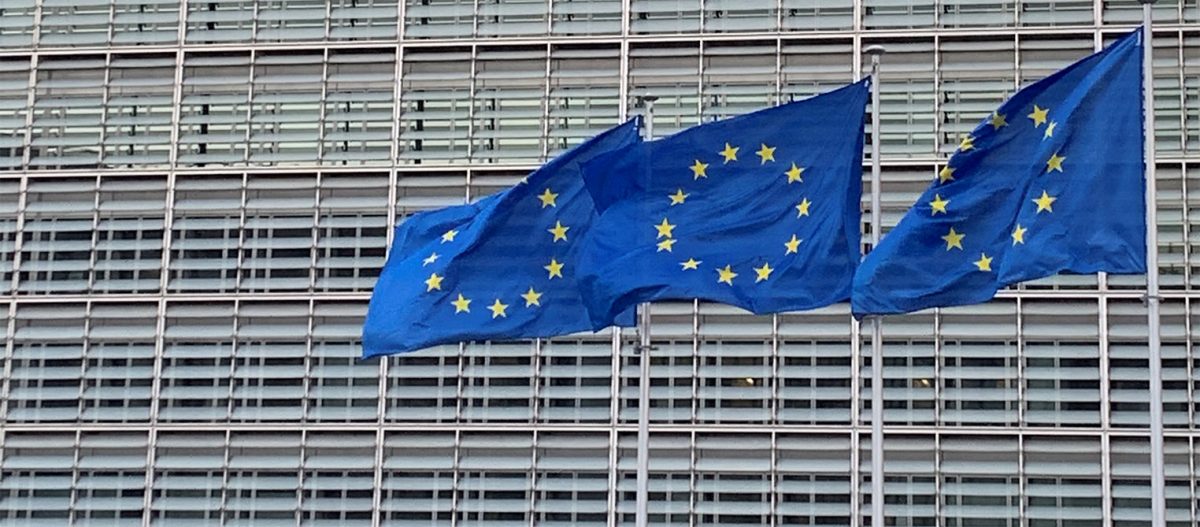PWB Co-director Seb Dance writes:
Brexit is a tragedy for the UK. It removes us from a key western alliance and the world’s largest trading bloc. It restricts the rights and life chances of millions of British citizens. It makes our country poorer. It massively increases the chances of a break-up of the UK. And it is a powerful rejection of solidarity, peace and internationalism. These are all major tenets of our party and movement.
Brexit’s genesis – in a referendum with no requirement for a supermajority and where millions of directly affected citizens were unable to vote – is something few developed democracies would accept as the basis for such severe and hard-to-reverse constitutional change. It has driven a wedge through our society, culture and even through families. And it was done for no other purpose than to unite the Conservative Party.
All of this is true, and we must never forget it. Yet there is no immediate prospect of reversing this tragedy. We are leaving the European Union’s orbit, the single market and the customs union. Most Labour members hate it, but it’s happening. Our task as pro-Europeans in the Labour Party is to adapt our campaigning to an environment we did not design, rather than pine for a past we have lost.
This was not the case before the 2019 general election. The parliamentary arithmetic meant there was a real chance to change course. And despite the disappointing shrug from some quarters of our movement, it was always the entirely right and proper thing to strive for. Whatever else people may offer up as an explanation for Labour’s catastrophic defeat in December, it must be remembered that politics is as much about leading as it is about following. A clear position based on conviction and delivered with authority, on an issue most voters ranked lower than other bread-and-butter concerns, could have altered the outcome. But, despite the heroic efforts of many in the Parliamentary Labour Party, our then-leadership showed no such conviction.
But enough history – now we must look forward. I believe there are four fundamental tasks for pro-Europeans in the Labour Party in the coming months. The first task is to be savvy enough not to fall into Boris Johnson’s all-too-obvious Brexit trap. When Rachel Reeves says that under a Labour government “we will not be in the EU”, although it may make us feel uncomfortable, I do not believe it is done to give victory to Brexiteers or put two fingers up to Remainers. It is surely done to avoid the trap that Johnson has been desperate for Labour to jump into since Keir assumed the leadership of the party. Brexit will happen and be real enough very soon. But had we appeared incapable of accepting its imminent arrival, Labour could easily have been portrayed as incapable of changing. And change is clearly what voters demand of us.
However, it is both the case that a campaign to rejoin the EU is unthinkable for the Labour Party right now and that Brexit will prove to be a catastrophic failure, the effects of which will need resolving under a Labour government. Therefore, our second task is to scrutinise the new reality, rather than re-litigate the events that got us here. We have been told many times since 2016 to “just accept it and move on”. Brexit is obviously happening. Not to accept that would, frankly, be bizarre. But it would be a huge mistake to collude in a cross-party delusion that it could be a success, or to pretend a progressive social democratic future can be built on a landscape permanently reconfigured to suit a hard Brexit.
We need to start scrutinising the consequences of this new reality for our country. A reality where the UK plays no significant role in European manufacturing and supply chains. Where our food, labour and environmental standards are configured to suit the needs of much larger economies with much lower standards in order to secure tariff and quota arrangements. Where exporting businesses are hampered by barriers their counterparts in the EU don’t face. Where British citizens are disadvantaged by no longer being able to move and work freely around their own continent. Where our universities are constrained in the talent and expertise they can attract.
Where consumers face fewer protections. Where tourists and pensioners face prohibitive travel costs through the loss of reciprocal healthcare. Where our police forces don’t routinely co-operate across borders. Where our economy supports fewer jobs. And where our public services come under sustained attack from lower tax revenue and fewer extraordinary people who choose to make the UK their home. This is clearly not a sustainable future. It is not a platform from which a prosperous, progressive country can be built. It is not a vision of life shared by any of our socialist and social democratic sister parties. The urgent question for all of us in the Labour Party is: “If we cannot be inside the EU ecosystem, how do we solve these vital issues?”
The third task for pro-Europeans is to reclaim patriotism. The huge success of Brexiteers, and populists in general, has been equating their otherwise disastrous projects with a love for their country. Whatever your approach to the vexed issue of patriotism, it speaks to identity and pride, which are two maxims most of us hold dear to in some way. Keir is absolutely right to focus on this emotion, as it is a prime driver of support for our opponents. We must extend this concept to the consequences of Brexit.
We must argue loudly and clearly how deeply unpatriotic the Tories have been in fracturing our society for their own internal benefit. Brexit makes the UK weaker abroad, poorer at home, and more likely to break apart. If you genuinely love your country, you don’t tear it apart – there’s nothing patriotic about that. And as with Brexit, so too with the Tories’ attitudes to immigration, multilateralism and our justice system. Their attacks on our values might come wrapped in the flag, but they run contrary to the common British values we must champion. Adopting the mantle of patriotism must not be viewed as a way of ceding ground to the Tories, but instead as a key weapon in bringing them down.
Finally – and crucially – we must remake the case for internationalism, a bedrock of the labour movement. EU membership is just one part of a much bigger jigsaw. We have lost an important piece of that puzzle, but by building the rest of the picture it will make the missing piece far more obvious. I joined the Labour Party for many reasons, but high among them was its commitment to internationalism. Losing the EU referendum in 2016 was a body blow to the ideas I hold dear. But we must now arrest the slide towards nationalist isolationism and win the argument that today’s challenges can be met only through an internationalist approach. That cross-border co-operation is essential to finding solutions that work and that nationalist conservatism acts only to exacerbate the problems we face.
The last four years have undoubtedly been a very tough time for pro-Europeans, and the months and years ahead may be no different. We will find ourselves frustrated and, at times, lonely and isolated. But don’t give up. Remember that it is not a question of whether, but when Brexit will fail. It will fail both on its own terms and as a foundation on which to build a social-democratic future. The realisation of that failure might be long and piecemeal, or it could be sudden. In either case, it would be foolish to assume the worldview of Brexiteers is sustainable just because their campaigning has been more successful than ours up until now.
If we focus our energies on the four tasks above, then we will, in time, have the space to make our wider arguments for ever-closer co-operation with our European friends and neighbours. Brexit is unsustainable – and that makes any future built on it unsustainable. We must always hold on to confidence: confidence that ours is really the only route to the progressive future our movement want to build.
This article was first published on Labour List, 23 October 2020.

